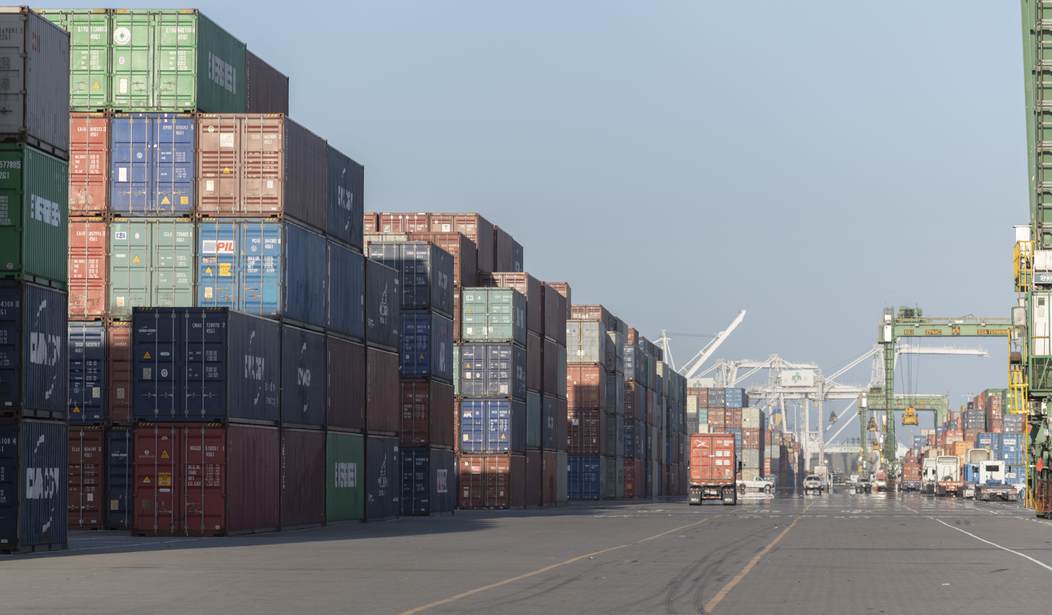WASHINGTON — While ripped by lawmakers on both sides of the aisle of levying steel and aluminum tariffs on Canada and Mexico, Senate Minority Leader Chuck Schumer (D-N.Y.) praised President Trump’s new tariff decision on Chinese imports “on the money.”
“China is our real trade enemy, and their theft of intellectual property and their refusal to let our companies compete fairly threatens millions of future American jobs,” Schumer said. “While we await further details on this trade action, President Trump is right on target.”
Trump began his tariff announcement by lauding his “great friendship” with Communist leader Xi Jinping, and how that and relations between the U.S. and China “are both very important to me.”
“Trade between our nations, however, has been very unfair, for a very long time. This situation is no longer sustainable. China has, for example, long been engaging in several unfair practices related to the acquisition of American intellectual property and technology,” Trump said in the statement issued by the White House. “These practices, documented in an extensive report published by the United States Trade Representative (USTR) on March 22, 2018, harm our economic and national security and deepen our already massive trade imbalance with China.”
The 25 percent tariff will be applied to $50 billion of goods from China that “contain industrially significant technologies,” he said.
“This includes goods related to China’s Made in China 2025 strategic plan to dominate the emerging high-technology industries that will drive future economic growth for China, but hurt economic growth for the United States and many other countries. The United States can no longer tolerate losing our technology and intellectual property through unfair economic practices.”
Trump called the tariffs “essential to preventing further unfair transfers of American technology and intellectual property to China, which will protect American jobs.”
“In addition, they will serve as an initial step toward bringing balance to the trade relationship between the United States and China,” he continued. “The United States will pursue additional tariffs if China engages in retaliatory measures, such as imposing new tariffs on United States goods, services, or agricultural products; raising non-tariff barriers; or taking punitive actions against American exporters or American companies operating in China.”
China’s Commerce Ministry fired back in a statement, “The United States has kept changing its mind and now launched a trade war.”
“We will immediately launch tariff measures that will match the scale and intensity of those launched by the United States,” the ministry promised, adding that “all economic and trade agreements reached by previous negotiations will be nullified at the same time.”
U.S. soybean futures plummeted earlier this week on fears that a trade war was brimming and China would follow through on its threat of a 25 percent soybean tariff. American farmers export about $14 billion worth of soybeans to China each year.
The American Soybean Association lobbied Congress this week to resist the tariffs. “Crop prices have dropped 40 percent in just the last five years, and farm income is down 50 percent compared to 2013. A recent study by Purdue University economists predicts that soybean exports to China could drop by a whopping 65 percent if China imposes a 25 percent tariff on U.S. soybeans,” said Davie Stephens, a Kentucky soybean grower and vice president of ASA. “As a soy grower, I depend on trade with China – China imports roughly 60 percent of total U.S. soybean exports, representing nearly 1 in 3 rows of harvested soybeans.”
Wheat and corn growers associations also expressed fears about what the trade war might do to farmers.
Sen. Sherrod Brown (D-Ohio) told MSNBC on Thursday that the U.S. needs to use tariffs against China “selectively; we do them in ways that retaliation is minimized and they are more temporary.”
“But that’s not the way the president has laid them out. That’s my concern,” Brown said. “I talked this week at length with a U.S. trade rep from my wife’s hometown of Ashtabula, Ohio, and we’ve got a lot to do to do this right. It’s been done generally in the right direction, but not been done as well as it should be.”
Sen. Marco Rubio (R-Fla.) backed the trade action as “an excellent move by President Trump.”
“China is systematically stealing the fruits of American innovation in an attempt to displace us as the most powerful economy and military in the world,” he said. “Hitting China with a ‘Theft Tax’ isn’t protectionism; it’s American leadership. I strongly support the President’s Section 301 trade actions.”









Join the conversation as a VIP Member